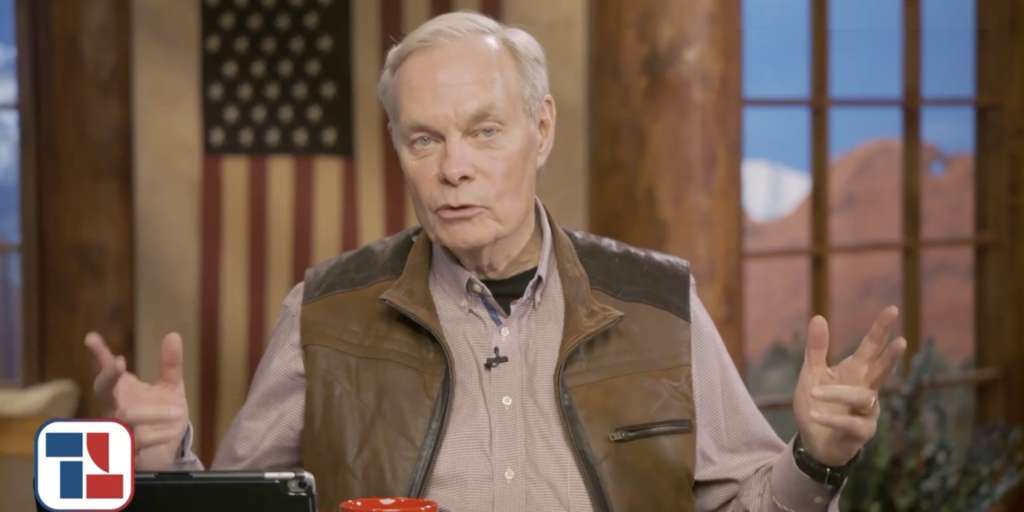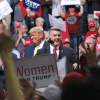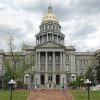This was just a battle,” Woodland Park-based evangelist Andrew Wommack wrote last week, triumphant in the aftermath of Donald Trump’s victory. “The war is yet to be won. The left is not going away, because they’re inspired by the devil – and the devil has never quit!”
In his post-election missive, Wommack – a nationally recognized leader in the Christian nationalist movement, who helms the global ministry bearing his name, as well as Charis Bible College and the Truth & Liberty political operation – struck a tone not unlike his contemporaries in the movement: eager and militaristic, positioning themselves and their followers not at the end of the great quest to “retake America” but at the beginning of the great task of purifying it.
With Trump returning to office thanks in no small part to the political operations of well-organized Christian nationalist outfits, Wommack and the others have every reason to expect that their movement has ascended, and that their moment has arrived. It’s what they hope to do with that moment which is so troubling.
While a past era of brash Christian-right leaders might have been in it purely for the money – no one has ever accused Kenneth Copeland or Benny Hinn of being too genuine – the current generation of leaders in the Christian nationalist movement is in it for something else, too: power. They mean the things they say. They believe that the country must be taken back for God. They believe that our laws must adhere more closely to Christian scriptures. Now that Trump has won and they can taste some semblance of that power, Christian nationalist leaders – along with their tens of millions of followers – are not resting on a fait accompli. They are gearing up for battle.

As I made my way through the Christian nationalist media ecosystem in the wreckage of the election, I did not dismiss the martial tone and belligerent promises from televangelists and movement leaders as the theatrical ramblings of practiced conmen; I took them for what they really are: threats. Threats from people, like Wommack, who talk about their political opponents in terms of demonic influence and earnestly believe that the political left is inspired by the literal devil. Threats, from people who hope soon to be in a position to make good on them.
“I think there’s a lot to look forward to in a second Trump term,” Wommack wrote. “The next few years could be a tremendous opportunity to see some real godly laws put into place!”
Wommack was far from alone in seeing Trump’s victory as the beginning of an era in which Christians will be empowered to “take back the country for God” – a notion which usually entails legal crackdowns on abortion, a restriction of LGBTQ+ civil liberties, and strict media regulations, among other more transient details.
“This election is not the end of the story, it’s the beginning,” said Christian nationalist leader and self-proclaimed prophet Jonathan Cahn last week. Cahn, based in New Jersey, is a leading voice in the movement, sporting well over one million YouTube followers and frequently appearing at major movement events. In February, Dr. Matthew Taylor of the Institute for Islamic, Christian, and Jewish Studies, referred to Cahn as “ubiquitous in right-wing charismatic circles.”
In the lead-up to the election, Cahn appeared on Fox News claiming that “The Bible makes clear who will win today’s battles.” He also spoke at a major Christian nationalist event on the National Mall in Washington, D.C. in October. Cahn described the event – which focused on “cleansing” the nation of “sexual immorality” and featured discussions of “demon-possessed” queer people – as a “mass exorcism revival.” On the Mall that day, Cahn took a sledgehammer to a mock-up of an altar to the Babylonian fertility goddess Ishtar, which Cahn described as “the altar of abortion, the altar of sexual immorality, the altar of pornography, the altar of transitioning of children, of mutilating them.”
“A massive door has opened up for us,” Cahn told his YouTube audience last week, speaking of Trump’s victory. “This is a pivotal moment and we cannot miss it.”
Joel Webbon, a Christian nationalist pastor and podcaster, is also celebrating Trump’s victory. On social media, he called Trump’s win “a victory for American Christianity,” and posted “Ding Dong! The Witch is Dead!” about Harris.
Last month, Webbon made headlines by preaching from his pulpit that women who make false claims of sexual assault should be executed. “#MeToo would end real fast…All you have to do is publicly execute a few women who have lied.” Webbon has previously expressed his belief that women should not be allowed to vote, and made other headlines for saying he would “always” pick a white doctor over a Black doctor.
The day after Trump’s victory, Webbon and his co-authors finalized and published their manifesto, a “Statement on Christian Nationalism.” Though the website hosting the document is currently down, the Pennsylvania-based Bucks County Beacon uncovered a copy of the document earlier this year and shared its contents at that time. According to the Beacon’s write-up of the document, Webbon’s manifesto calls for Christian magistrates to wield legal power to prosecute and punish crimes, for “the Church to instruct civil authorities,” and for the Ten Commandments to be established “as the foundational law of the nation.”

It’s not an accident that the manifesto was officially published the day after the election: like other Christian nationalist leaders, Webbon clearly sees Trump’s victory as a starting pistol.
Lance Wallnau, the Texas-based evangelist who has become one of the top voices in the movement, echoed the generally militant sentiments of his contemporaries like Wommack, Cahn, and Webbon. In an election night live stream with fellow movement leader Dutch Sheets, Wallnau proclaimed that Christians should “go where the gates of hell are located in the DOJ, in the government, in the IRS,” to “tear down” those “strongholds.”
“God has given us a chance to see it happen.”
Sheets, Wallnau’s co-host on election night, is also an influential figure in the Christian nationalist movement, perhaps best known for his years-long campaign to popularize the Appeal to Heaven flag as the unofficial banner of the movement. Sheets has been a vocal supporter of House Speaker Mike Johnson’s rise to power – and Johnson, in turn, flies Sheets’ preferred flag outside of his office on Capitol Hill.
“This is a reformation of America,” Wallnau, who hosted J.D. Vance for a pre-election event and made headlines in September for accusing Vice President Kamala Harris of practicing witchcraft, told his followers on the election night stream. “It’s not done, it’s not over, it’s just starting.”
I clicked through page after page, video after video, of more or less the same messages from Christian nationalist leaders over the last week. Movement leaders are exhorting their followers to action in uniformly militaristic language. They are emboldened by Trump’s victory, buoyed by the promises he made to them in his pursuit of the office, and eager to be given the kind of secular power they crave. What remains to be seen is whether Trump will keep those promises now that he has secured his victory. If he follows through on even half of the commitments he made to Christian nationalist leaders on the campaign trail this year, his second administration will see significantly more movement towards reshaping domestic society than his first did.
There would be nothing surprising about Trump reneging on his alliance with the Christian nationalist movement – he is famous for his dishonesty and perfidy. But he is, perhaps, even more famous for his self-interest, and his almost reptilian instinct for preserving it, and he understands as well as anyone what he stands to gain from remaining on good terms with movements leaders like Wallnau, Wommack, Cahn, Webbon, and others: influencers with tens of millions of loyal evangelical followers, who will forgive his every sin.

These leaders might not be household names – at least not in your household – but they are well known in wide swaths of the country, and they wield genuine influence. Trump is aware of this fact. It’s why he platformed so many of them throughout his race. It’s why the tone of his campaign rhetoric was significantly more religiously-inflected, and even messianic, this year than in his past campaigns. It’s why he carved-out time in late October, in the critical closing weeks of the campaign, to gather with a few dozen of the most prominent Christian nationalist leaders – Wommack amongst them – and have them pray over him.
Now, many of the same Christian nationalist leaders who prayed over Trump two weeks ago are praying that their phones will ring, that they’ll be invited to discuss the future with him. That they will be given the earthly authority to pursue their heavenly ends. They have plans, and they’re itching to put them into action.
“Jesus is coming with the armies of heaven,” Wallnau said on his YouTube channel after the election, summing up the mood of the movement at large. “And he’s coming to do battle.”




